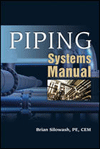Swedish Steel Firm Buys IPSCO For $7.7 Billion
IPSCO, based in Regina, Saskatchewan, but with executive offices in the Chicago suburb of Lisle, IL, is a leading producer of energy tubulars and steel plate in North America with an annual steel making capacity of 4.3 million tons. IPSCO operates four steel mills, 11 pipe mills, and scrap processing centers and product finishing facilities in 25 geographic locations across the U.S. and Canada. The company’s pipe mills produce a wide range of seamless and welded energy tubular products, including oil & gas well casing, tubing, line pipe and large diameter transmission pipe.
SSAB is a publicly traded corporation with a leading European position in plate and sheet steel, and a worldwide sales presence in more than 40 countries. The group comprises four divisions with sales revenues of almost $4.6 billion. The transaction will make SSAB North America’s largest plate steel maker and the second-largest OCTG provider, after United States Steel.
Supply House Times reported in last month’s edition the widespread rumor that Russia’s Evraz Group was making a bid to purchase IPSCO. There were some reports of another company involved in negotiations with IPSCO simultaneously, but most financial analysts were surprised by the Swedish firm’s takeover. Some thought SSAB was itself a target for acquisition.
The transaction comes amid a whirlwind of global steel industry consolidation. Analysts say the U.S. steel market is attractive to foreign companies due to growing domestic consumption - especially of high-quality steel products - plus comparatively high margins and lack of capacity in the U.S. to meet that demand.
Energy-related tubular steel has been particularly attractive because of high demand and comparatively high margins. Shortly before the IPSCO sale, U.S. Steel agreed to buy oilfield welded pipe producer Lone Star Technologies for $2.1 billion, making U.S. Steel the continent’s largest producer of tubular products. Prior to that, tubular makers Maverick and NS Group were acquired by foreign companies. Many foreign steel companies have significant cost advantages because of access to low-cost raw materials, labor and electricity.
Looking for a reprint of this article?
From high-res PDFs to custom plaques, order your copy today!



